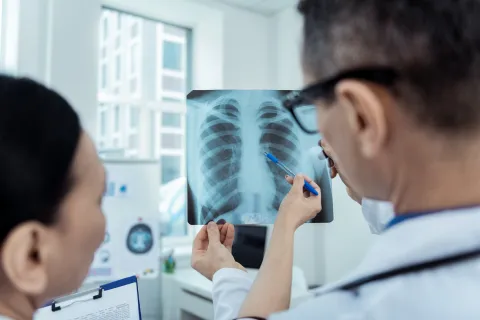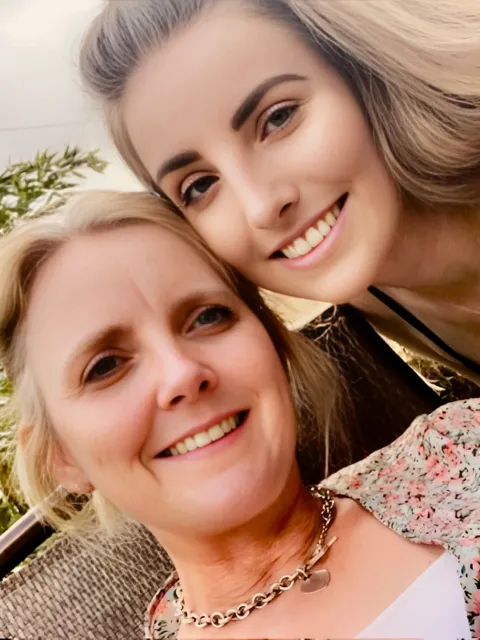What are the 90/70/90 goals in lung cancer?

Closing November as Lung Cancer Awareness Month, Michael Hartevelt of MSD, a UICC partner, explains how many of the needed tools exist to achieve better outcomes in lung cancer, and asks: Could a consensus on global goals help us to get there?
UICC's work in lung cancer
UICC is dedicated to advancing global efforts in lung cancer prevention, early detection, treatment, and survivorship. Through strategic engagement and collaboration with a diverse network of stakeholders, UICC aims to reduce the burden of lung cancer and improve outcomes for patients worldwide.
This lung cancer awareness month, I am feeling more hopeful than ever for policy change that will lead to better outcomes for lung cancer patients.
It is true that lung cancer remains the leading cause of cancer death worldwide, and that the drivers of this disease burden can be complex to address and vary widely across regions. However, I am also seeing a growing recognition of the potential to do better.
Never have we had such a deep knowledge of the different types of lung cancer or had so many advanced tools to treat them. Thousands of people across the world could have their lives transformed if governments and health systems seize the opportunity and commit to improving lung cancer survival through access to timely screening, diagnosis, and treatment.
Already, a better understanding of the causes for lung cancer means we are seeing improvements in awareness leading to slow but sure destigmatisation and increasing understanding that anyone with lungs can get lung cancer, not only smokers.
Earlier detection leads to better outcomes and is possible, not only through screening but also methods such as improved public and provider awareness and better management of incidental findings.
Over the last 10 years, the US Federal Drug Administration has approved over 17 new medicines to treat lung cancer. In the area of metastatic solid tumours, research and treatment developments for advanced and metastatic non-small cell lung cancer are among the most active and promising.
Lastly, I see an increase of advocacy at global, regional and local levels as new organisations come into existence and come together to align on priorities for advancing outcomes for people living with lung cancer.
One such collaboration is the UICC Lung Cancer Collaboration (LCC), of which MSD is a proud member and supporter. It is imperative that an organisation such as UICC take a leadership position in this area that has such a high potential for impactful change. At MSD, we are excited to work alongside the LCC and TriMar Strategies in the development of a series of regional Lung Cancer Declarations, with a view to developing a global consensus for lung cancer policies.
Starting from the 2023 ‘Athens Declaration’, we are working together with regional lung cancer organisations to develop similar documents across the globe. Our goal is to find regional consensus for policy across five pillars, creating a guide for policymakers to enact meaningful change:
- Improve and expand prevention: Including tobacco control, environmental factors and increasing awareness
- Focus on early detection: including targeted screening programmes, improved understanding of genetic differences and their impact, ensuring the needs of never-smokers are not overlooked
- Ensure equitable and sustainable access to treatment: including improving collaborative approaches to timely and sustainable technology access, updating guidelines, optimizing patient navigation and strengthening needed digital infrastructure
- Build partnerships and promote investment: including building advocacy alliances and strengthening system resilience to ensure improvements are available equitably
- Combat stigma: recognizing it as a social determinant of health: addressing unconscious bias and improving health literacy and awareness that lung cancer is not a death sentence
Our regional discussions to date have indicated a high level of agreement across these five pillars. Each region, and country, will inevitably have areas of greater focus and interest, these differences should be acknowledged and explored to facilitate learnings and important insight generation.
At a country level, policy settings can be assessed across the identified consensus position and areas for action identified as well as relevant targets and KPIs. At the global level areas of broad agreement should inform signals that are sent via global institutions, especially in 2025, an important year to focus on NCDs such as cancer. We should aspire towards a lung cancer equivalent of the cervical cancer 90/70/90 targets.
Lung cancer awareness month provides an opportunity to reflect on the burden of lung cancer and the need to do more to improve outcomes. We want to live in a world where a lung cancer diagnosis is not met with fear, where people with lung cancer do not face shame or stigma because of their disease, and are empowered to seek access to the care and support they need.
We have the tools now to help people with lung cancer live longer and better lives. Scientific advances in screening, diagnostics, and treatments are giving new confidence to patients, their families, and caregivers that lung cancer can be treated and managed with timely interventions.
As is always the case in cancer advocacy, we must work together to achieve the goal, in lung cancer, and I am encouraged that we are already collaborating like never before. I congratulate the UICC for their leadership in this area and all the other leaders in the lung cancer space for recognising this need and pulling together, I am optimistic that we are on the way to great impact.

The Lung Cancer room is a dedicated space for the lung cancer community to stay connected, share knowledge, and exchange key insights from lung cancer experts.
Last update
Thursday 22 May 2025Share this page


